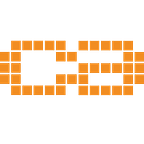As you sow, so shall you reap
This week in Craft Academy — Week4 June 2017
For the Craft Academy team, this week is all about retrospectives and internal work. For our learners it is about catching a breath from the high pace of the bootcamp and enjoy the Swedish summer — Craft Academy is taking a Summer Break this week.
Our Seniors, who graduated last week, really need to slow things down and recover after 12 weeks of hard work. The Juniors, who started their journey 2 weeks ago, can also benefit from some time off, let things sink in and gather strength for the next upcoming 10 weeks of the bootcamp.
Some bootcampers don’t rest. Even though we encourage our learners to take whatever opportunity they have to relax, some of them still keep on fighting. Faraz, one of our juniors takes the time to come in to the office and do some extra work in order to consolidate his skills. Benjamin, one of the newly graduated Seniors, is out there searching for jobs. To us, it’s one of many signs that whatever we are doing works.
Benjamin tells us that the companies he contacts are impressed with his determination to learn and get into a broad set of topics. Once he gets to talk about the Craft Academy curriculum and what he’s been up to for the last 12 weeks, they are happy to let him through the door even if they are not currently looking for junior developers. During his first week as a job hunter (the first week after graduation) he managed to set up 2 interviews for programmer positions. That makes us very proud!
The feedback Benjamin got from the potential employer is exactly why we do things the way we do here at Craft Academy.
As an educator, you reap what you sow. If you want to create lots of individuals who can talk about the theoretical aspects of computer science? Then sow lots of theory without practical application. If you want to create individuals who are able to contribute effectively to modern Agile software teams, then sow lots and lots of relevant project experience and see what you reap.
Many computer science courses are focused on technical aspects of programming rather than offering a broad setting where the technology can be applied.
At Craft Academy, on the other hand, we believe that the best way to promote an interest in and understanding of complex topics among learners, is to use situations from both the everyday and professional life of the students in our labs and programming assignments.
In practical terms we have built our curriculum around a set of challenges introduced to the learners during activity-orientated sessions that combines practical implementation with the underlying theoretical principles. This mix brings meaning to theory by demonstrating it in specific contexts that the students recognize and can relate to.
As we move along with the challenge based curriculum, students tend to not only pick up the relevant lingo, start to imitate behavior and over time begin to act in accordance with the best practices of the technological setting, but also start to form their own complex decision-making strategies and apply them in their workflow.
That approach goes far beyond programming skills only. Each part of the curriculum is a form of simulation of a professional setting that our students may find them selfs in the future.
One of the main principles of agile methodology — the way we understand and use it — is to constantly validate that we are solving the right problem, to verify that we are solving it the right way and to do the minimal amount of manual work to deliver a shippable product or service. By introducing more and more complex and challenging requirements over time, we create a setting where learners are motivated to employ the different techniques made available to them to improve their workflow and work more efficiently.
It’s all about building experience and with this approach, students gain more relevant project experience then they would do in a strictly theoretical environment.
But it’s also about building a sound and solid foundation for our learners to build their future careers on. For us, modern engineering practices such as agile methods, design thinking, automated testing, continuous integration and deployment are considered vital parts of this foundation.
During our camp we deliver very little content that can not be instantly put into practice by our learners. Our devotion to contextual, problem based learning is as total as it can get. Over time, we’ve noticed that our students are adopting that mindset.
We believe that this mindset gives our learners an competitive advantage on the job market and make them good candidates for programmer positions.
If you are excited to join the many thousands of companies who have hired bootcamp graduates, we’d love to talk more! Five times a year, we graduate a class of eager technical workers. As Benjamin and Faraz, they’ve all put their lives on hold, made a significant financial investment, and given their everything for three months — all to start their new careers as software engineers.
Peace out!
Craft Academy is a Tech Education Provider that aims to bring new talent to the market and help to solve the shortage of tech workers. We are founded on the belief that modern development standards, agile methodologies and business skills are fundamental for ITC professionals. Our primary service is a 12-week coding bootcamp designed to provide individuals with a foundation of skills that allows them to enter the industry as junior developers.
With that foundation, our learners find employment in various industries or start their own businesses that bring new innovations to the market.
Would you like to know more about what we do? Follow us here on Medium, Facebook, Twitter or visit our website.
